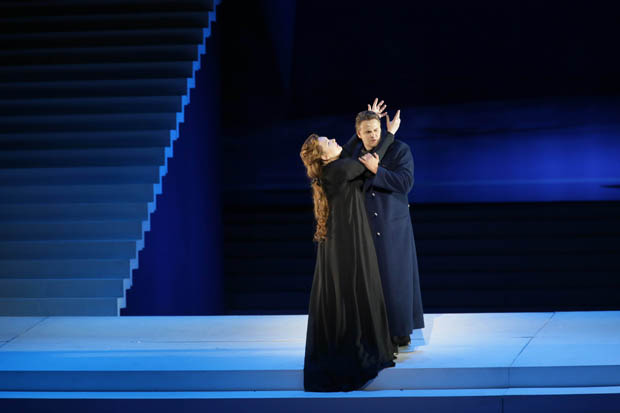I wonder whether grand opéra really takes war as seriously as this year’s Edinburgh Festival wanted it to. These vast works, written to exploit and reflect the power, resources and tastes of mid-19th-century Paris, tended to favour history and its battles for the scenic opportunities they afforded rather than for the lessons they taught. It was the cross-cultural love stories in the foreground that were the dramatic focus; whatever the context, the obligatory ballet always had to be shoehorned in.
Berlioz provided a work that ostensibly fitted the formula with his Troyens, fashioned from Virgil’s Aeneid during the 1850s, painstakingly, obsessively and with minimal reward. It was rejected by the Paris Opera and for many decades performed only in truncated, bisected versions. As tended to be the case with this composer, the rules were followed only partly. Classical subjects were more the domain of an earlier operatic era, and the score — fusing Gluck-inspired restraint with the composer’s characteristically brilliant, pointedly unrestrained musical imagination — has tended to be damned with faint praise as ‘uneven’ and ‘sprawling’.
The resources of Valery Gergiev’s Mariinsky Opera, recently beefed up by the addition of a glitzy second opera house, are far from modest, and can just about keep up with the ambitions of its famously overstretched maestro.

Get Britain's best politics newsletters
Register to get The Spectator's insight and opinion straight to your inbox. You can then read two free articles each week.
Already a subscriber? Log in







Comments
Join the debate for just $5 for 3 months
Be part of the conversation with other Spectator readers by getting your first three months for $5.
UNLOCK ACCESS Just $5 for 3 monthsAlready a subscriber? Log in